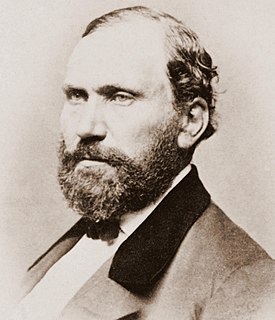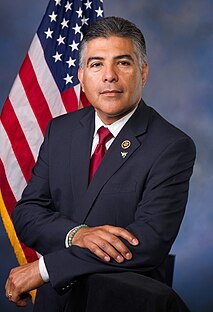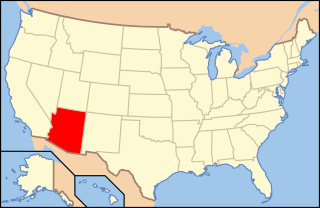
A detective is an investigator, usually a member of a law enforcement agency. They often collect information to solve crime by talking to witnesses and informants, collecting physical evidence, or searching records in databases. This leads them to arrest criminals and enable them to be convicted in court. A detective may work for the police or privately.
A paralegal is an individual who is employed or retained by a lawyer, law office, corporation, governmental agency, or other entity and who performs specifically delegated substantive legal work for which a lawyer is responsible. Paralegals perform tasks requiring knowledge of the law and legal procedures, but the exact nature of their work and limitations that the law places on the tasks they are allowed to undertake vary between nations and jurisdictions. A paralegal is not a lawyer but is typically employed by a law office or internal legal department of a company; paralegals are typically not allowed to offer legal services independently in most jurisdictions. Paralegals operate under a form of independent legal ethics, but with few exceptions must also typically conduct their work under the formal supervision of an attorney. In some jurisdictions, paralegals can conduct their own business and are called Law Agents, providing services such as settlements, court filings, legal research and other auxiliary legal services; these tasks often have instructions from a solicitor attached.
In law, a minor is a person under a certain age, usually the age of majority, which legally demarcates childhood from adulthood. The age of majority depends upon jurisdiction and application, but it is generally 18. Minor may also be used in contexts that are unconnected to the overall age of majority. For example, the drinking age in the United States is usually 21, and younger people are sometimes called minors in the context of alcohol law, even if they are at least 18. The term underage often refers to those under the age of majority, but it may also refer to persons under a certain age limit, such as the drinking age, smoking age, age of consent, marriageable age, driving age, voting age, etc. Such age limits are often different from the age of majority.

Juvenile delinquency, also known as "juvenile offending", is the act of participating in unlawful behavior as minors. Most legal systems prescribe specific procedures for dealing with juveniles, such as juvenile detention centers and courts, with it being common that juvenile systems are treated as civil cases instead of criminal, or a hybrid thereof to avoid certain requirements required for criminal cases. A juvenile delinquent in the United States is a person who is typically below 18 years of age and commits an act that otherwise would have been charged as a crime if they were an adult. Depending on the type and severity of the offense committed, it is possible for people under 18 to be charged and treated as adults.
Mandatory sentencing requires that offenders serve a predefined term for certain crimes, commonly serious and violent offenses. Judges are bound by law; these sentences are produced through the legislature, not the judicial system. They are instituted to expedite the sentencing process and limit the possibility of irregularity of outcomes due to judicial discretion. Mandatory sentences are typically given to people who are convicted of certain serious and/or violent crimes, and require a prison sentence. Mandatory sentencing laws vary across nations; they are more prevalent in common law jurisdictions because civil law jurisdictions usually prescribe minimum and maximum sentences for every type of crime in explicit laws.
Emancipation of minors is a legal mechanism by which a minor is freed from control by their parents or guardians, and the parents or guardians are freed from any and all responsibility toward the child. Children are considered legally incompetent to enter into contracts and to handle their own affairs. Emancipation overrides that presumption and allows emancipated children to legally make certain decisions on their own behalf.

The Chin people are one of the major ethnic nationalities in Burma. The Chin are one of the founding groups of the Union of Burma. Chin is the primary ethnic group of the Chin State, who have many related languages, cultures and traditions. According to BBC News, "The Chin people... are one of the most persecuted minority groups in Burma." The largest ethnic group of the Chin people are the Zomi. These people predominantly live in the Chin State, Bago Division, Ayeyarwady Division, Magwe Division, Rakhine State and Sagaing Region of Myanmar, but are also spread throughout Burma, Bangladesh and India as refugee. In the 2014 Burmese ethnic census, the Chin ethnicity was again dismissed by the people of the Chin State.

A juvenile court is a tribunal having special authority to pass judgements for crimes that are committed by children or adolescents who have not attained the age of majority. In most modern legal systems, children or teens who commit a crime are treated differently from legal adults that have committed the same offense.

Safe-haven laws are statutes in the United States that decriminalize the leaving of unharmed infants with statutorily designated private persons so that the child becomes a ward of the state. "Safe-haven" laws typically let parents remain nameless to the court, often using a numbered bracelet system as the only means of linking the baby to the parent. Some states treat safe-haven surrenders as child dependency or abandonment, with a complaint being filed for such in juvenile court. The parent either defaults or answers the complaint. Others treat safe-haven surrenders as adoption surrenders, hence a waiver of parental rights. Police stations, hospitals, and fire stations are all typical locations to which the safe-haven law applies.

Antonio Cárdenas is an American politician who has served as the United States Representative for California's 29th congressional district since January 2013.

The ages of consent vary by jurisdiction across Europe. The ages of consent are currently set between 14 and 18. The vast majority of countries set their ages in the range of 14 to 16; only four countries, Cyprus (17), Ireland (17), Turkey (18) and Vatican City (18), do not fit into this pattern. The laws can also stipulate the specific activities that are permitted or differentially specify the age at which a given sex can participate. Below is a discussion of the various laws dealing with this subject. The highlighted age is that at which, or above which, an individual can engage in unfettered sexual relations with another who is also at or above that age. In 2014, the self-declared state of the Turkish Republic of Northern Cyprus lifted the ban on sodomy, decriminalizing homosexual sex. All jurisdictions in Europe have an equal and gender-neutral age limit.
In the common law legal system, an expungement proceeding is a type of lawsuit in which a first time offender of a prior criminal conviction seeks that the records of that earlier process be sealed, making the records unavailable through the state or Federal repositories. If successful, the records are said to be "expunged". Black's Law Dictionary defines "expungement of record" as the "Process by which record of criminal conviction is destroyed or sealed from the state or Federal repository." While expungement deals with an underlying criminal record, it is a civil action in which the subject is the petitioner or plaintiff asking a court to declare that the records be expunged.

The Adam Walsh Child Protection and Safety Act is a federal statute that was signed into law by U.S. President George W. Bush on July 27, 2006. The Walsh Act organizes sex offenders into three tiers according to the crime committed, and mandates that Tier 3 offenders update their whereabouts every three months with lifetime registration requirements. Tier 2 offenders must update their whereabouts every six months with 25 years of registration, and Tier 1 offenders must update their whereabouts every year with 15 years of registration. Failure to register and update information is a felony under the law. States are required to publicly disclose information of Tier 2 and Tier 3 offenders, at minimum. It also contains civil commitment provisions for sexually dangerous people.
Permanent Residence Under Color of Law (PRUCOL) is not recognized as an immigration status by the U.S. Citizenship and Immigration Services (USCIS); this category was created by the courts and is a public benefits eligibility category. For a person to be residing "under color of law," the USCIS must know of the person’s presence in the U.S., and must provide the person with written assurance that enforcement of deportation is not planned. A person residing under PRUCOL status cannot directly apply for U.S. citizenship or sponsor family members to obtain U.S. Citizenship. A person from any country, who resides in the United States without current legal immigration status including, but not limited to, citizenship, permanent residency, unexpired immigrant visa, is an undocumented person. Though they are not U.S. citizens, they are considered to have the same rights as legal residents ‘for welfare eligibility purposes’.
Engineer in Training, or EIT, is a professional designation from the National Council of Examiners for Engineering and Surveying (NCEES) used in the United States to designate a person certified by the state as having completed two requirements:
A tax protester is someone who refuses to pay a tax claiming that the tax laws are unconstitutional or otherwise invalid. Tax protesters are different from tax resisters, who refuse to pay taxes as a protest against a government or its policies, or a moral opposition to taxation in general, not out of a belief that the tax law itself is invalid. The United States has a large and organized culture of people who espouse such theories. Tax protesters also exist in other countries.
Parenting coordinator (PC) is a relatively new practice used in some US states to manage ongoing issues in high-conflict child custody and visitation cases by professional psychologist or a lawyer assigned by the Court. There are 10 states as of May 2011 that have passed legislation regarding parenting coordinators: Colorado, Idaho (2002), Louisiana (2007), New Hampshire (2009), North Carolina (2005), Oklahoma (2001), Oregon (2002), Texas (2005), and Florida (2009). Legislation has been pending in Massachusetts for many years without significant progress.

Asian-Pacific American (APA) or Asian-Pacific Islander (API) is a term sometimes used in the United States to include both Asian Americans and Pacific Islands Americans.

Firearm laws in Arizona regulate the sale, possession, and use of firearms and ammunition in the state of Arizona in the United States.
The International Association for the Treatment of Sexual Offenders (IATSO) is an international non-profit professional organization based in Vienna committed to the promotion of research of and treatment for sex offenders throughout the world.













